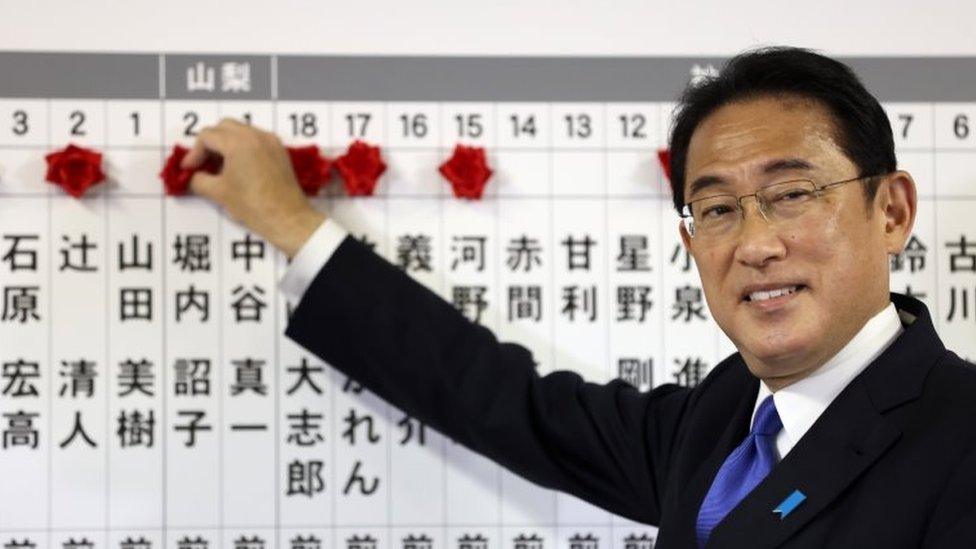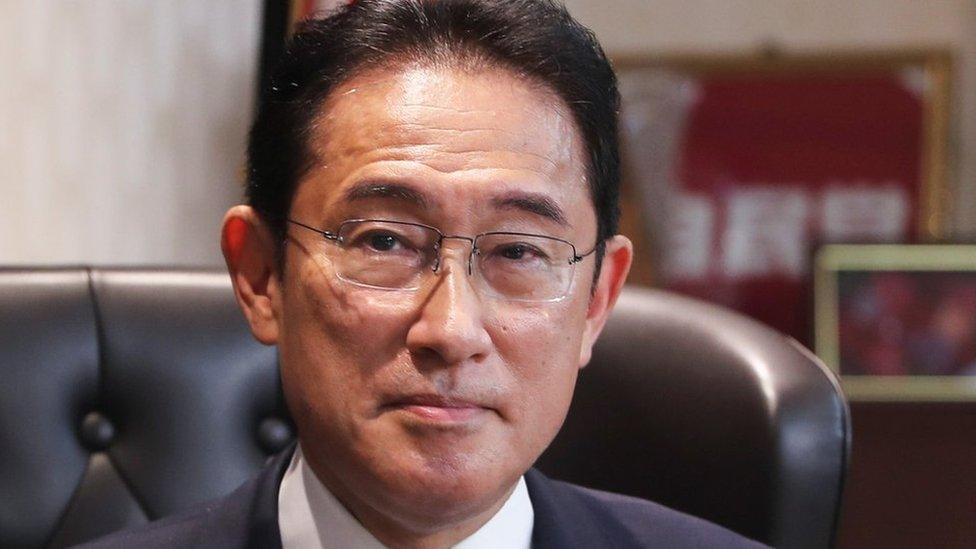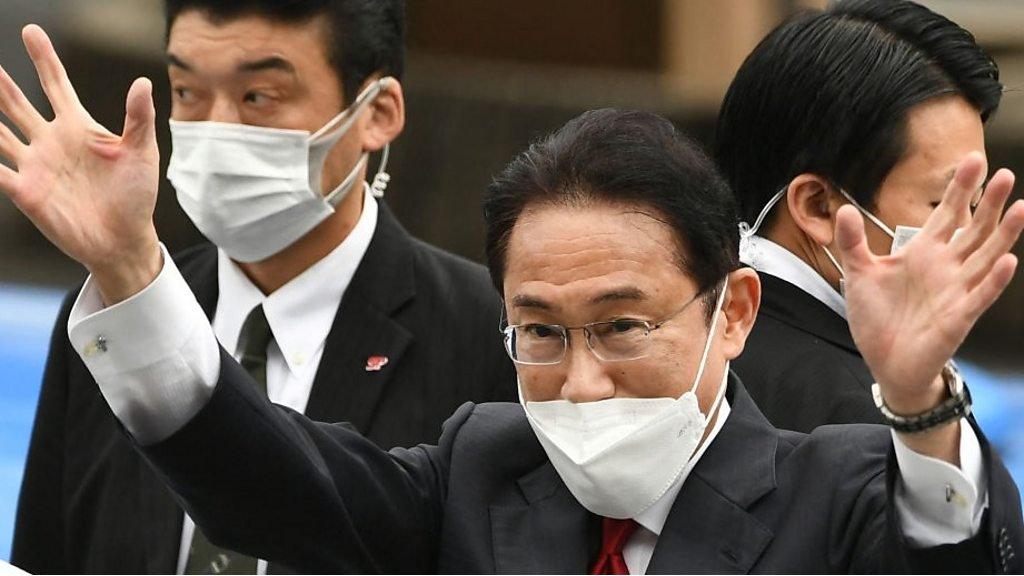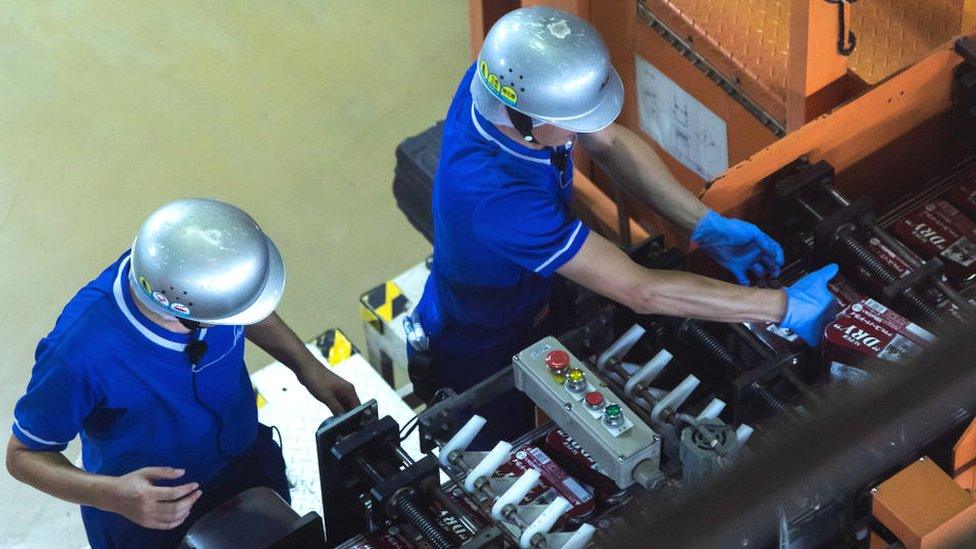Japan election: PM Fumio Kishida declares victory for ruling LDP
- Published

Prime Minister Fumio Kishida took power of the ruling party ahead of the general election
Japan's prime minister Fumio Kishida has declared victory for his ruling Liberal Democratic Party (LDP).
In a big win for Mr Kishida, who only became PM a month ago, his party secured more than 233 lower house seats - enough to govern without its coalition partner Komeito.
The LDP has dominated Japanese politics for decades but was criticised for its handling of the pandemic.
Mr Kishida's predecessor Yoshihide Suga quit after just a year in office.
The resignation came amid plummeting poll ratings for the LDP following an unpopular push to continue with the Tokyo Olympics despite public concern about surging Covid-19 rates.
Mr Kishida, 64, has long-targeted the prime ministerial role and previously served as the country's foreign minister from 2012 to 2017.
The LDP went into Sunday's general election holding 276 of the 465 seats up for grabs.
Initial exit polls suggested the LDP would need to rely on its coalition partner for a majority - but it defied expectations.
The LDP has now scored 261 seats, exceeding the parliamentary majority of 233 seats. With Komeito scoring 32 seats, it gives their coalition a total of 293 seats.
Japan's parliament, known as the National Diet, comprises the lower House of Representatives and an upper House of Councillors.
Sunday's vote concerned the more powerful lower house, with an upper house vote set to take place next year.
On Monday, Japan's Nikkei 225 benchmark share index closed 2.6% higher, as investors bet that the LDP's outright majority means that Mr Kishida's economic stimulus plans will pass smoothly through parliament.
Before the election Mr Kishida had promised to spend trillions of yen to help support the world's third largest economy in the wake of the pandemic.
He had on Sunday night told national broadcaster NHK that he planned an extra budget before the end of this year.

Who is Fumio Kishida?
Mr Kishida comes from a political family with both his father and grandfather involved in government
He was first elected as a lawmaker in 1993 and became the longest serving foreign minister between 2012-2017
He arranged Barack Obama's 2016 visit to his hometown Hiroshima, one of the cities hit by a nuclear bomb, the first by a sitting US President
He failed the entrance exam to the esteemed University of Tokyo - seen as an "embarrassment" by his family, many of whom studied there
He loves drinking, famously challenging his Russian counterpart foreign minister Sergey Lavrov to a drinking contest

Japan election: Why the ruling party keeps winning
Related topics
- Published29 September 2021

- Published29 October 2021

- Published1 November 2021
